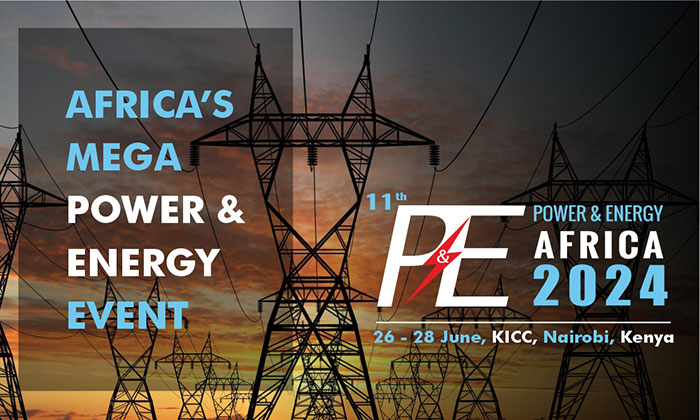

Kenyan Government Advances Plans to Build the Country's First Nuclear Power Plant

Posted on :Wednesday , 4th December 2024
Kenya's Nuclear Power and Energy Agency (NuPEA) officials stated that the nation is on schedule to begin building its first nuclear power station by 2027. The facility will start producing electricity by 2034, the organization stated during a parliamentary hearing this month.
As more African nations explore constructing nuclear power plants to provide electricity in response to the continent's growing demand for electricity, Kenya's action is the most recent. According to a statement released by the Rwanda Atomic Energy Board last year, Rwanda concluded an agreement with Dual Fluid Energy of Canada for a test reactor that would employ liquid fuel and lead coolant, reducing the amount of radioactive waste. According to officials, the nation wants to generate at least 1 GW of nuclear electricity by 2031.
The head of strategy and planning for NuPEA, Winnie Ndubai, informed the Senate Energy Committee of Kenya that two coastal areas are under consideration as possible sites. The proposed plant will be constructed in Kilifi County, one of the nation's most popular tourist attractions and an area renowned for its beaches and thick mangrove forests, as per the to local media. According to Ndubai, the country's nuclear power regulatory framework is still being developed.
The only nuclear power station in operation on the African continent is the 1,860-MW Koeberg plant in Cape Town. The first of four VVER-1200 reactors at the four-unit El Dabaa power station being constructed in Egypt by Russia's state-owned Rosatom nuclear enterprise which is anticipated to go operational in 2026.
Uganda is working on plans to construct an 8.4 GW nuclear power plant in the eastern Buyende District, according to government officials last week. The nation claimed to be negotiating a nuclear cooperation deal with Russia. Additionally, South Korean energy firms have shown a desire to transfer their technologies to Africa.
According to Kenyan officials, the nation's long-term energy needs cannot be met without nuclear power. According to the Ministry of Energy, Kenya's fast industrial expansion might cause the country's power demand to double by the middle of the century. Approximately 90% of the nation's electricity is currently produced by renewable resources, such as solar, wind, hydro, and geothermal.
The 1,000-MW nuclear power project would cost over 500 billion Kenyan shillings ($3.7 billion). This August, Musalia Mudavadi, the prime minister, announced that a research reactor would be put into service by the early 2030s.
"Kenya is dedicated to setting the standard for clean energy." “As part of its sustainable energy policy, Kenya is committed to developing nuclear technology”, Mudavadi, stated.
"We urge the government to invest in renewable energy sources that are safer, cleaner, and more sustainable instead of pursuing a nuclear program that puts the lives and livelihoods of our people at risk," the Kenya Anti-Nuclear Alliance stated in a statement earlier this year.
At the recent COP29 United Nations climate summit in Baku, Azerbaijan, Kenya and Nigeria signed the "Declaration to Triple Nuclear Energy." The plan calls for a 300% increase in nuclear power capacity worldwide by 2050. When the proclamation was introduced last year, two additional African countries, Ghana and Morocco, signed it.
Please Select an Option
-
Exhibiting
-
Visiting
-
Information

Expogroup
Expogroup is a full service exhibition organiser with over 29 years experience in International trade exhibitions. Our current portfolio includes 25 annual exhibitions from a diverse range of industries being held across the Middle East & Africa.
EXPOGROUP © 1996 - 2026 | Privacy policy
